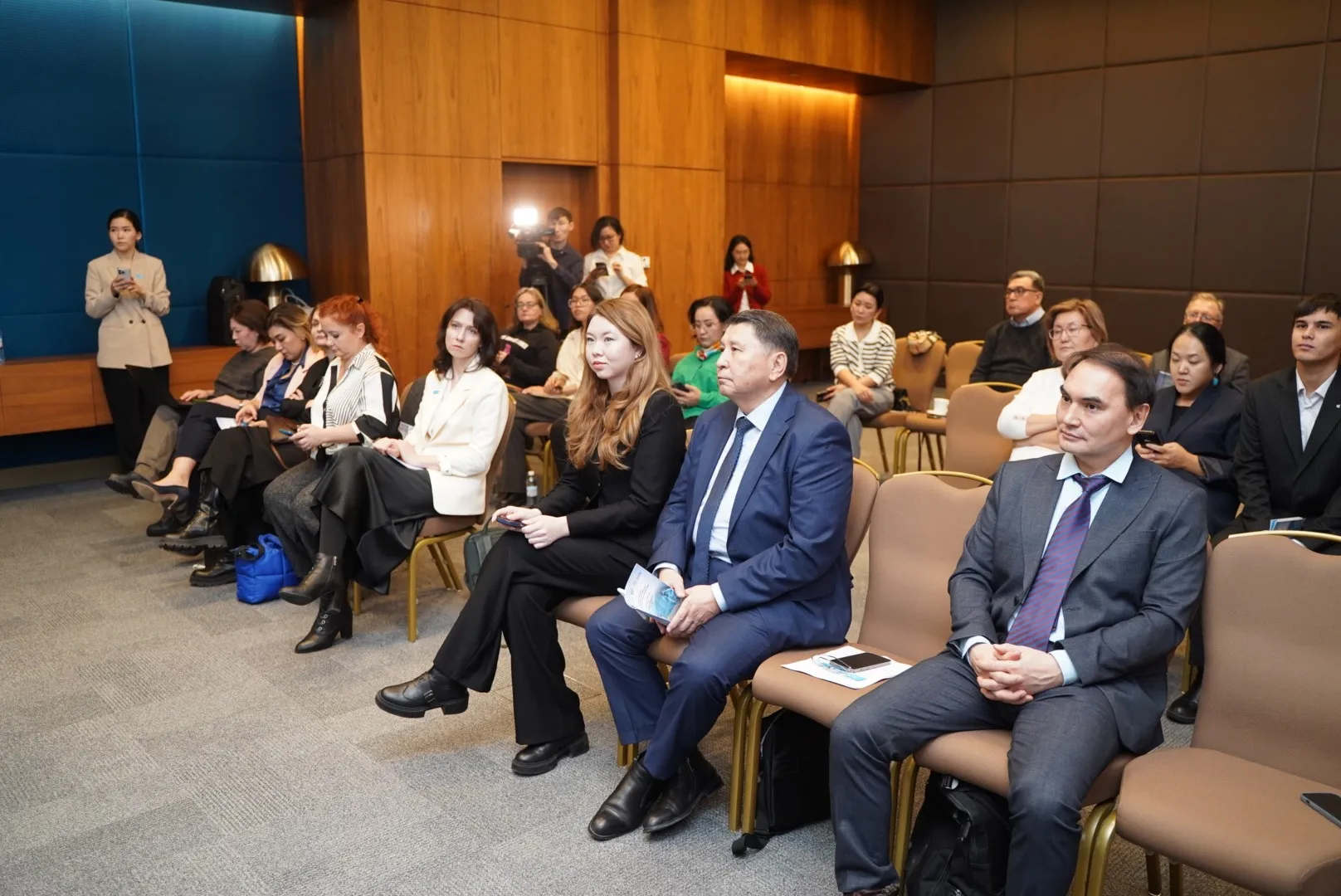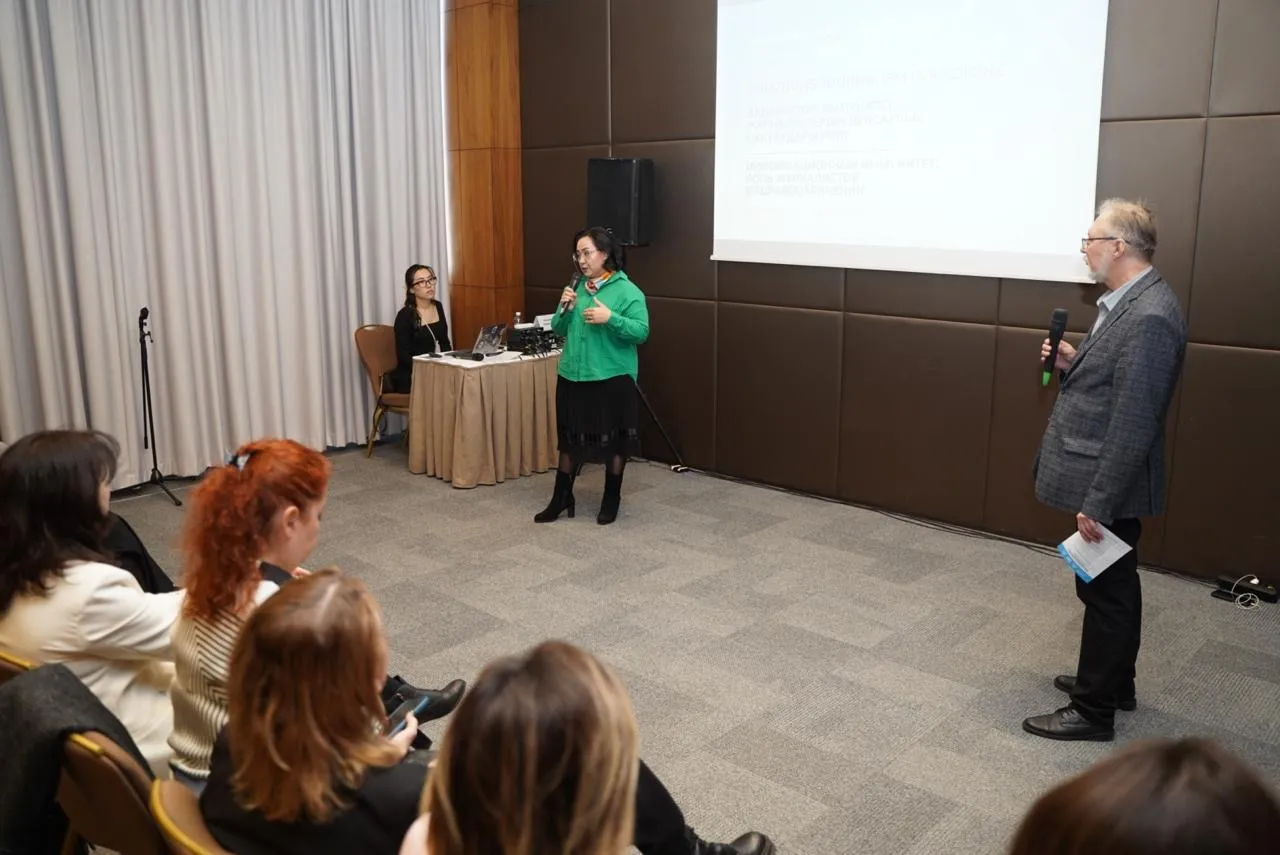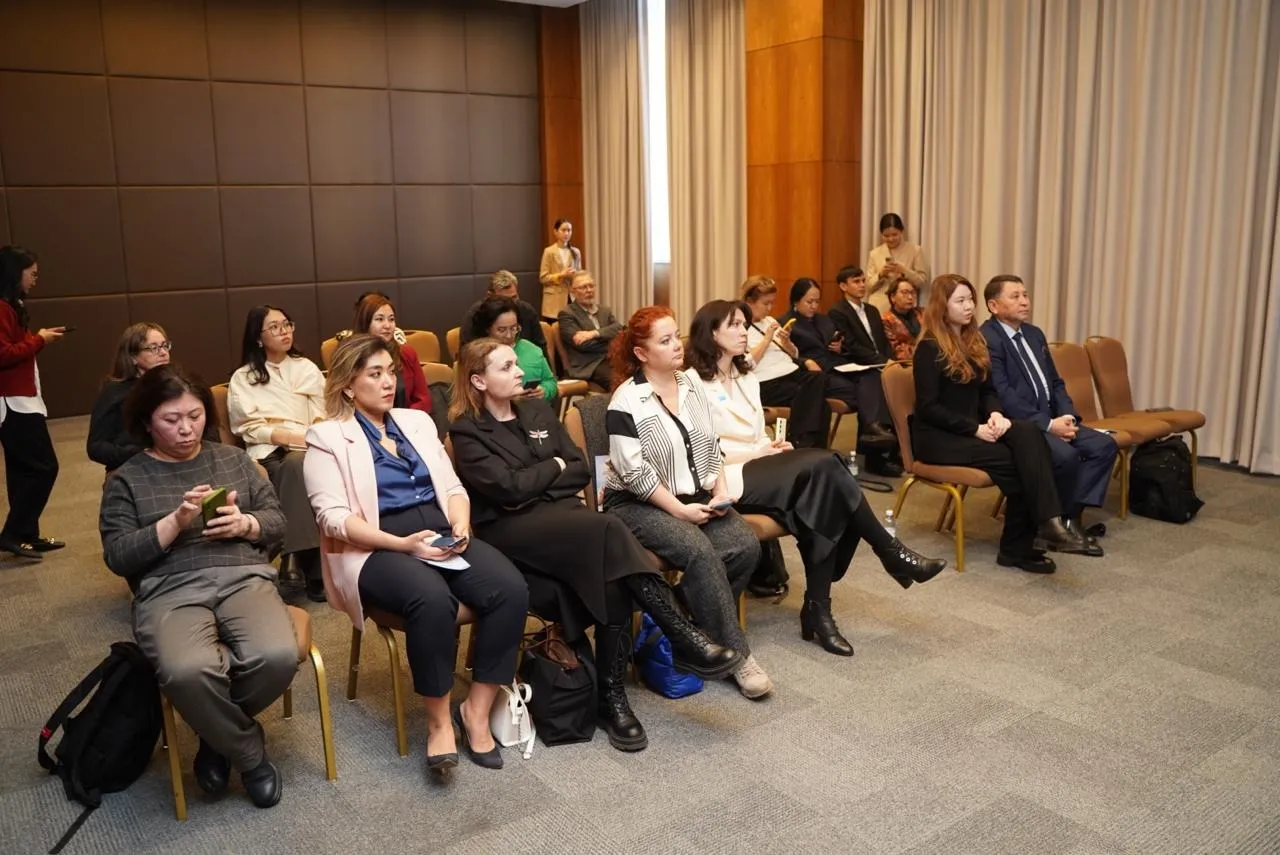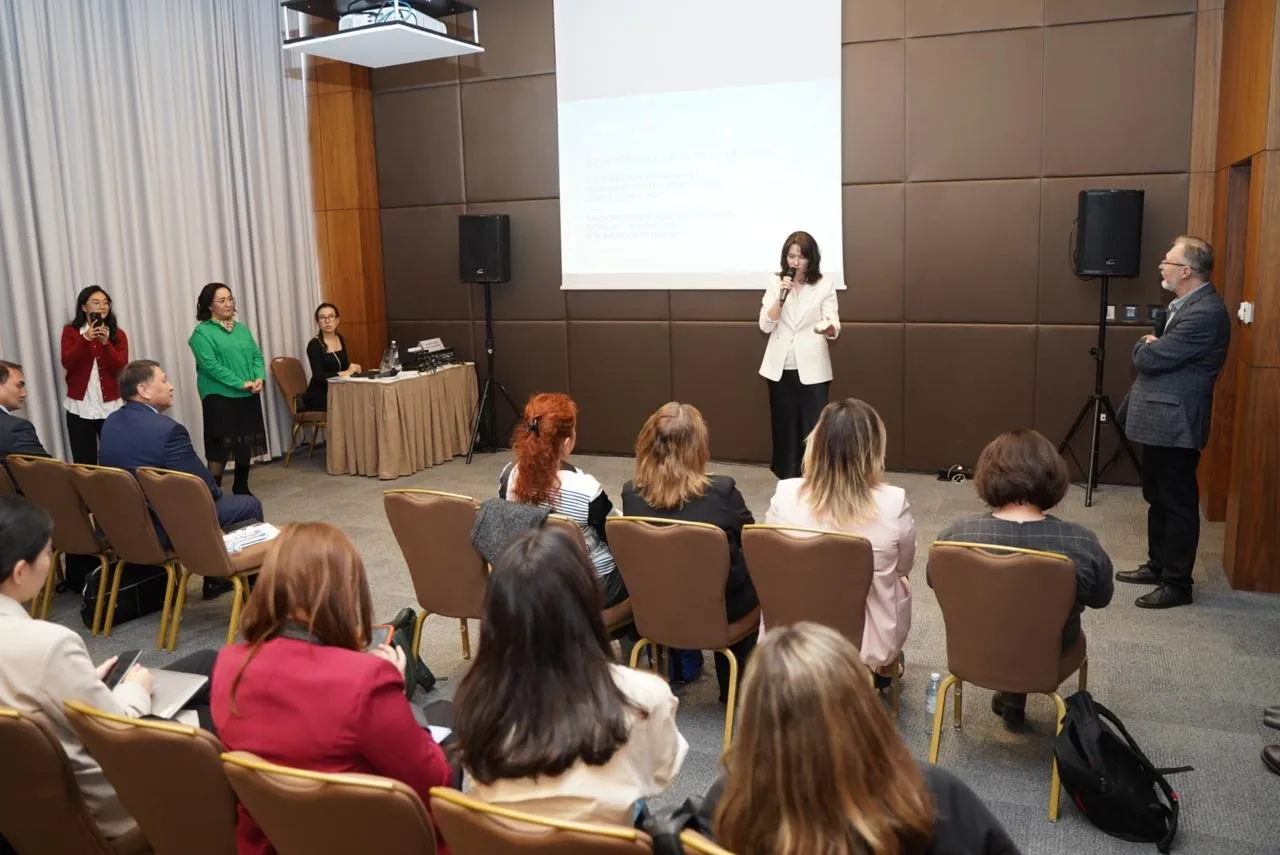SJMED Project: Solutions Journalism Transforms Medical Reporting in Kazakhstan
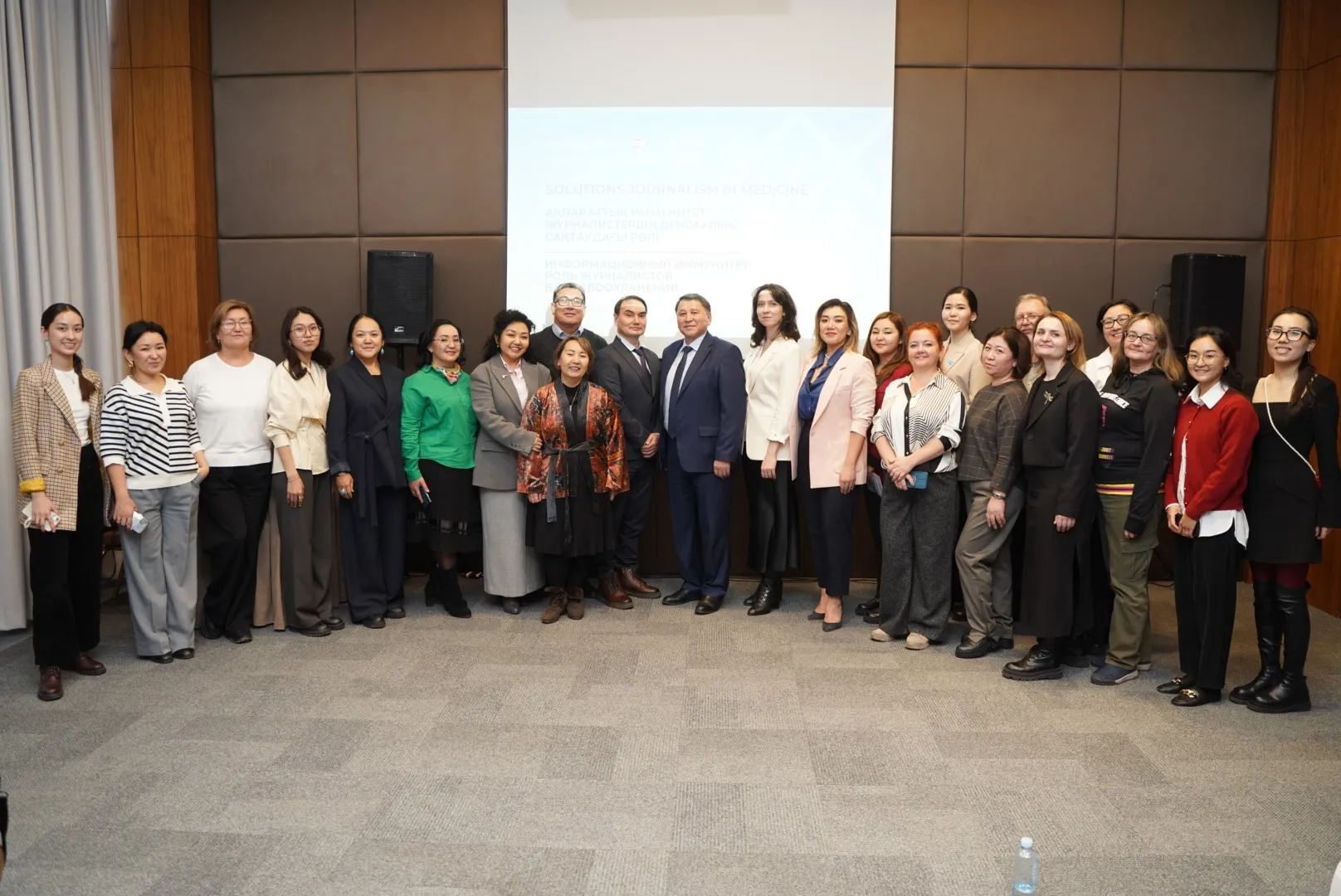
On November 28, 2024, a roundtable in Astana marked the conclusion of the SJMED (Solutions Journalism in Medicine) project. This initiative was implemented by the United Nations Children's Fund (UNICEF) and the International Foundation for Protection of Freedom of Speech "Adil Soz", with support from the United States Agency for International Development (USAID), and ran from June to November 2024. The project's goal was to make journalistic materials on medical topics clear, engaging, useful, and reliable by employing the genre of solutions journalism*.
“The COVID-19 pandemic has clearly demonstrated that access to reliable information plays a crucial role in preventing the spread of diseases and protecting individual health. Responsible, fact-based journalism helps people make informed decisions—whether it's about vaccination, adhering to preventive measures, or seeking timely medical care,” said Dr. Rashed Mustafa Sarwar, UNICEF Representative in Kazakhstan.
“UNICEF supports initiatives aimed at enhancing the capacity of media to address complex health issues. We believe that quality information saves lives, and a professional approach to creating medical content strengthens public trust and helps society prepare for new challenges,” Dr. Sarwar added.
Fifty journalists from various regions of Kazakhstan participated in a series of intensive webinars, where they learned storytelling, fact-checking, solutions journalism, and how to identify evidence of effective solutions and explain them in accessible language.
"By supporting projects like SJMED, USAID contributes to the development of quality journalism that helps convey important health information but also communicates to people and communities how they can protect themselves and remain healthy. This is key to more resilient and prepared healthcare systems," noted Acting Mission Director of USAID Central Asia Monique Mosolf.
Participants were trained by experienced experts:
- Dmitry Mazorenko (Vlast.kz) on writing in the solutions journalism genre.
- Pavel Bannikov (master of OSINT) on fact-checking.
- Jamilya Maricheva (Protenge.kz) on making data understandable.
- Oksana Akulova (journalist) on working with medical topics.
- Asel Mussabekova (biologist, science popularizer) on writing about medicine.
In the second phase, 20 of the most active participants were selected to create and publish 21 unique articles on vaccination, combating existing and new viruses, and issues of uncontrolled antibiotic use. These materials have already garnered over 235,000 views. The journalists worked under the guidance of experienced mentors: Yelzhan Birtanov, Botagoz Kaukenova, Anatoliy Ivanov-Weisskopf, Oksana Akulova, Kalima Tajikul, and Elnur Alimova.
"Materials on medical topics, written in accessible language and not only highlighting healthcare issues but also proposing solutions, achieve comparable numbers of the coveted views. This was fully demonstrated by the joint project of the "Adil Soz" foundation and UNICEF – SJMED. Simply put, individual publications collectively garnered up to 40,000 views," noted project mentor Anatoliy Ivanov-Weisskopf.
Among the standout works:
- Irina Volkova's "Unhealthy Cashback" on the problems of uncontrolled antibiotic use"
- Marina Nizovkina's "Does Love for Cats and Steaks Always Lead to Toxoplasmosis?"
- Dana Nurmukhanbet's "Epidemic After a Natural Disaster. Is There a Way to Prevent It?"
- Ainur Shoshaeva's "With the 'Sogym' Season Approaching: How to Prevent Anthrax in Kazakhstan?"
"As the COVID-19 has shown, readiness for global pandemics is not only dependent on the healthcare system itself but also on how well and timely we, as citizens, are informed to make the right decisions to protect our health. A lie can travel halfway around the world while the truth is still putting on its shoes. This is especially true in the age of social media. Therefore, any effort to prevent an infodemic must be proactive and carried out before problems arise. To 'sleep through the storm,' as the Chinese say, we must make contributions during calm times and support a series of evidence-based and high-quality media publications. This is why 'Adil Soz' consistently supports journalists working in the solutions journalism genre and has implemented this healthcare-focused project," emphasized Karla Jamankulova, President of the "Adil Soz" Foundation.
More detailed information about the project is available at https://solvefuture.kz/en/sjmed/
___________________________________
*Solutions journalism is a new genre of journalism that not only highlights current problems but also seeks successful solutions that have already been applied in practice.

